Renal Diet Restrictions
You're likely familiar with the idea of a special diet, and they are becoming increasingly more popular for treating chronic conditions. If you or someone you know has been diagnosed with chronic kidney disease (CKD), then you may have heard about renal diets.
It's important to understand renal diet restrictions in order to ensure that your loved one is getting the nutrition they need while managing their condition (how to manage chronic kidney disease).

This article will provide an overview of renal diets, including information on restricting sodium, potassium control, limiting phosphorus intake, protein considerations, managing carbohydrates and energy intake, food avoidance tips and meal planning ideas (meal planning for families with CKD).
With this knowledge in hand, you can give your loved one the support they need by helping them navigate dining out and other social events while following their specialized dietary needs.
Jump to:
- Key Takeaways
- Understanding Renal Diet: A Comprehensive Overview
- Restricting Sodium in the Renal Diet
- Importance of Potassium Control in the Renal Diet
- Phosphorus Limitations in the Renal Diet
- Protein Considerations in the Renal Diet
- Fluid Management in Renal Diet Restrictions
- Balancing Calcium Intake in a Renal Diet
- Understanding the Role of Vitamins in a Renal Diet
- Managing Carbohydrates and Energy Intake in a Renal Diet
- Specific Food Avoidance in the Renal Diet
- Meal Planning and Preparation for a Renal Diet
- Navigating Dining Out and Social Events with a Renal Diet
- Sample Renal Menu Plan
- Frequently Asked Questions
- Following Your Renal Diet Restriction Is Crucial At Any Stage Of CKD
Key Takeaways
- Renal diets are specialized eating plans for individuals with kidney disease or on dialysis.
- The primary focus of a renal diet is reducing sodium intake and achieving a balance between potassium and phosphorus.
- Processed foods should be avoided, and fresh fruits and vegetables should be prioritized.
- Regular blood tests should be done to monitor levels and make necessary adjustments.
Understanding Renal Diet: A Comprehensive Overview
The renal diet is a specialized eating plan designed to promote optimal kidney function and manage various kidney conditions, such as chronic kidney disease (CKD).
It focuses on the restriction of certain nutrients while ensuring adequate nutrition for overall health. The key components of a renal diet include sodium restriction, potassium restriction, phosphorus restriction, protein management, and fluid management.
Sodium restriction is an essential aspect of the renal diet as excessive sodium intake can contribute to fluid retention and high blood pressure. Patients are advised to limit their sodium intake by avoiding processed foods, canned foods, convenience foods, and fast food, and opting for fresh or homemade meals with minimal added salt (how much sodium per day for renal diet).
Potassium restriction is necessary because impaired kidney function can cause potassium levels to rise, leading to dangerous heart rhythms. Foods high in potassium, such as bananas, oranges, tomatoes, and potatoes, are restricted or consumed in moderation. Cooking methods like leaching or soaking certain high-potassium foods can help reduce their potassium content.
Phosphorus restriction is important for individuals with CKD because kidneys may struggle to remove excess phosphorus, resulting in imbalances that can weaken bones and damage blood vessels. Foods rich in phosphorus, including dairy products, nuts, seeds, and processed meats, are limited, and phosphate binders may be prescribed to control phosphorus levels.
Protein management is a key component of the renal diet. While protein is essential for overall health, excessive intake can burden the kidneys. The amount of protein restriction depends on the individual's kidney function and other factors. High-quality protein sources, such as lean meats, poultry, fish, and eggs, are recommended in moderate amounts.
Fluid management is crucial for individuals with kidney problems, as impaired kidney function may lead to fluid retention and electrolyte imbalances. Fluid intake is typically regulated based on the individual's urine output and specific needs. It is important to balance fluid intake to prevent dehydration while avoiding excessive fluid accumulation.
Gaining a comprehensive understanding of renal diets is essential to ensure optimal health. Renal diets are specialized eating plans that help individuals with kidney disease or those on dialysis due to end stage kidney disease manage their nutritional needs.
Following a renal diet can help individuals with kidney conditions manage their symptoms, maintain kidney function, and improve overall health. It is important for individuals to work closely with a registered dietitian or healthcare provider to personalize the diet plan based on their specific needs and medical condition.

Restricting Sodium in the Renal Diet
Restricting sodium in the renal diet is of utmost importance to maintain overall health and manage the symptoms of chronic kidney disease (CKD). Sodium is commonly found in high amounts in processed foods, making it challenging for individuals with CKD to reduce their intake (how do you eat out on a low sodium diet).
However, it is crucial to limit consumption of these foods and instead focus on incorporating fresh, fresh kidney friendly fruits and vegetables into the diet.
For people with kidney disease, it is generally recommended to keep sodium intake below 2000 milligrams per day. By adhering to this guideline, individuals can prevent symptoms associated with excessive sodium consumption, such as swelling, fluid retention, high blood pressure, and shortness of breath.
To effectively restrict sodium in the renal diet, several strategies can be employed. Avoiding processed foods, which are often high in sodium, is a primary step. Instead, opting for homemade meals using fresh ingredients allows for better control over sodium content. Reading food labels and choosing low-sodium alternatives is also important.
Tracking sodium levels can help individuals stay aware of their intake and make necessary adjustments to their diet. This can be achieved by keeping a food diary or using mobile applications that assist in monitoring sodium consumption.
Limiting processed sugars is essential, as they can contribute to various health issues, including diabetes and kidney disease progression. By reducing processed sugar intake, individuals can further support their overall health while managing the challenges of chronic kidney disease.
By implementing these strategies, individuals with CKD can ensure their bodies stay healthy and effectively manage their condition. Adhering to sodium restrictions, avoiding processed foods, and making conscious choices about salt intake can greatly contribute to maintaining kidney health and overall well-being, even in the presence of chronic kidney disease.
Importance of Potassium Control in the Renal Diet
Potassium control is of paramount importance in the renal diet, particularly for individuals with impaired kidney function or chronic kidney disease. Potassium is an essential mineral that plays a crucial role in various bodily functions, including nerve and muscle function, maintaining heart rhythm, and balancing fluid levels.
However, when the kidneys are not functioning optimally, they may struggle to eliminate excesses from intake of potassium, leading to a condition known as hyperkalemia, which is characterized by elevated levels of potassium in the bloodstream.
Hyperkalemia or having high blood potassium levels can have serious consequences, especially on the cardiovascular system. Extra potassium can disrupt the normal electrical activity of the heart, leading to irregular heart rhythms or even cardiac arrest in severe cases. Therefore, controlling potassium intake becomes crucial to prevent these potentially life-threatening complications.
The renal diet emphasizes limiting consumption of sources of potassium to maintain potassium levels within the normal range. Foods that are naturally high in potassium, such as the high potassium fruits bananas, and oranges, as well as potassium rich vegetables like tomatoes, potatoes, and certain legumes, are limited or consumed in moderation.
Cooking methods like leaching or soaking certain high-potassium foods can help reduce their potassium content.
Monitoring and managing potassium levels in the renal diet often requires regular blood tests to assess potassium levels and adjust dietary recommendations accordingly. This ensures that potassium intake is carefully controlled to prevent both hyperkalemia and hypokalemia (low potassium levels), which can also have adverse effects on the body.
It is worth noting that potassium requirements may vary depending on the individual's stage of kidney disease and their overall health status. In advanced stages of CKD, when potassium excretion is significantly impaired, strict potassium restriction may be necessary. However, in earlier stages or in individuals with normal kidney function, the restriction may not be as stringent.
Overall, avoiding excess potassium in the renal diet is vital for individuals with kidney conditions. It helps prevent the risk of hyperkalemia, reduces the burden on the kidneys, and supports cardiovascular health. It is important for individuals to work closely with health care provider, such as registered dietitians or nephrologists, to ensure appropriate potassium management in their renal diet (high potassium foods to avoid).
Phosphorus Limitations in the Renal Diet
Phosphorus intake limitations are a critical aspect of the renal diet, particularly for individuals with chronic kidney disease. Phosphorus is a mineral found in many foods and plays a crucial role in maintaining bone health, energy metabolism, and proper cell function.
However, in CKD, the kidneys may struggle to remove extra phosphorus from the body, leading to a condition known as hyperphosphatemia, characterized by elevated levels of phosphorus in the bloodstream.
Hyperphosphatemia can have serious consequences for individuals with kidney disease. It can disrupt the delicate balance of calcium and phosphorus in the body, resulting in decreased bone density and an increased risk of bone fractures and osteoporosis.
Furthermore, elevated phosphorus levels can contribute to the calcification of blood vessels, which can lead to cardiovascular complications, including heart disease and stroke.
To manage phosphorus levels, the renal diet emphasizes phosphorus restriction. High-phosphorus foods, such as dairy products, nuts, seeds, processed meats, canned and dark colored sodas, are limited or avoided.
When grocery shopping be meticulous of additive phosphorus content listed on nutrition facts or in the ingredient list of food items.
Instead, individuals are encouraged to choose low-phosphorus alternatives and opt for cooking methods that can reduce content of phosphorus, such as leaching or soaking high-phosphorus foods.
In addition to dietary restrictions, phosphate binders are often prescribed to individuals with CKD to control phosphorus absorption. These medications bind to dietary phosphorus in the digestive tract, preventing its absorption into the bloodstream.
It is important to note that phosphorus control in the renal diet requires careful monitoring and individualized recommendations. The specific limitations may vary depending on the individual's stage of kidney disease, their overall health status, and the presence of other conditions such as hyperparathyroidism.
Overall, adhering to phosphorus limitations in the renal diet is crucial for individuals with kidney disease. It helps prevent hyperphosphatemia, protects bone health, and reduces the risk of cardiovascular complications.
Collaborating with healthcare providers, such as registered renal dietitians and nephrologists, is essential to tailor the dietary recommendations and ensure effective phosphorus control in the renal diet.
Protein Considerations in the Renal Diet
Protein intake considerations are a significant aspect of the renal diet, particularly for individuals with chronic kidney disease. Protein is an essential nutrient that plays a crucial role in tissue repair, hormone production, and immune function.
However, in CKD, impaired kidney function can hinder the body's ability to effectively filter and excrete waste products of protein metabolism, resulting in the buildup of urea and other toxic substances. This can further strain the kidneys and worsen kidney function.
The amounts of protein intake in a renal diet needs to be carefully managed to balance the nutritional needs of the body while minimizing the burden on the kidneys.
The specific protein recommendations may vary based on the stage of CKD, level of kidney function, and individual factors. In general, the renal diet involves moderate protein restriction, aiming to provide enough protein for adequate nutrition without overtaxing the kidneys (why low protein diet in kidney disease).
High-quality protein sources are emphasized in the renal diet. These include lean meats, poultry, fish, eggs, and dairy products. These protein sources contain essential amino acids necessary for maintaining muscle mass and overall health. Plant-based proteins, such as legumes, tofu, and grains, can also be included in the diet.
In some cases, more severe protein restrictions may be necessary for individuals with advanced stages of CKD. This may involve limiting protein intake to a level that is lower than the recommended daily allowance. On the other hand, patients on dialysis may need more protein as the procedure can deplete the body’s protein stores.
Individuals following a renal diet should work closely with a consultant dietitian or healthcare providers to determine the appropriate protein intake for their specific needs. Regular monitoring of kidney function and nutritional status is essential to adjust protein recommendations as the disease progresses.
Overall, protein intake considerations in the renal diet involve balancing the nutritional needs of the body while minimizing the strain on the kidneys. Following the prescribed protein recommendations, consuming high-quality protein sources, and receiving ongoing guidance from healthcare professionals can help individuals with CKD maintain adequate nutrition and support overall kidney health.
Fluid Management in Renal Diet Restrictions
Staying on top of fluid restriction is critical for those with kidney issues, as limiting liquids can help manage symptoms and protect against further damage. For those following a renal diet, monitoring hydration levels is vital. It's important to not only track how much you're drinking but also what you're drinking.
Different drinks can contain different amounts of electrolytes and other minerals, which can complicate the already complex dietary modifications required in the renal diet.
It's also important to keep track of your food intake in relation to fluid management. Eating too much or too little salt and potassium can have an effect on hydration levels, so it's important to be aware of these changes when tracking fluids.
Additionally, certain medications may alter your body's response to hydration, so be sure to discuss any concerns with your doctor or nutritionist before making any changes in your lifestyle or diet plan.
Fluid retention can cause symptoms ranging from swelling or edema, to elevated blood pressure levels, and shortness of breath. Aside from being uncomfortable, excess fluid can also put stress on your heart health.
Consistent tracking of both food and fluid consumption is essential for successful outcomes with the renal diet restrictions. By keeping a close eye on your daily habits, you'll be able to make necessary adjustments as needed to maintain healthy hydration levels. This will allow you the best possible chance at living comfortably while managing any kidney-related ailments that may arise from improper dietary choices or inadequate fluid monitoring (fluid restriction guidelines for CKD).
Balancing Calcium Intake in a Renal Diet
Balancing calcium intake is an important consideration in a renal diet, especially for individuals with chronic kidney disease (CKD). Calcium is a vital mineral for the body, essential for maintaining strong bones and teeth, regulating muscle contractions, and supporting nerve function.
However, abnormal calcium levels can occur in CKD, leading to complications such as vascular calcification and bone disorders.
In the renal diet, the balance of calcium intake is achieved by considering both dietary calcium and phosphate levels. Individuals with CKD are often advised to limit high-calcium foods, such as dairy products, to avoid excessive calcium absorption and the risk of hypercalcemia. However, this restriction needs to be balanced with the need to maintain adequate calcium levels for bone health.
In some cases, calcium supplements or calcium-based phosphate binders may be prescribed to help manage phosphate levels and maintain appropriate calcium balance. These medications can help control phosphate absorption while providing a supplemental source of calcium.
It is important to note that the balance between calcium and phosphate is crucial for individuals with CKD. Elevated phosphate levels can lead to decreased calcium levels, which can then trigger the release of parathyroid hormone (PTH) and the development of secondary hyperparathyroidism. This condition can further contribute to bone disease and other complications.
Working with a consultant dietitian or health professional is essential to determine the appropriate calcium intake for an individual's specific needs. Regular monitoring of calcium and phosphate levels, along with kidney function, helps guide adjustments in the dietary recommendations and medication regimen as necessary.
Finally, talk with your doctor or nutritionist about how much calcium you need based on factors such as age, gender, health condition, etc., so you can create a balanced diet plan that meets all your needs while protecting your kidneys from damage.

Understanding the Role of Vitamins in a Renal Diet
For people with kidney problems on a renal diet, certain vitamins and supplements may be prescribed to address specific nutritional needs and support overall health. However, it's important to note that individual requirements can vary based on the stage of kidney disease, blood test results, and specific health conditions.
It is always recommended to consult with a health care provider or registered dietitian before starting any supplements. Here are some common vitamins and supplements that may be prescribed for kidney patients on a renal diet:
- Water-Soluble Vitamins: Kidney disease can lead to increased urinary losses of water-soluble vitamins, such as vitamin C, thiamin, riboflavin, niacin, vitamin B6, folate, and vitamin B12. Supplementation of these vitamins may be recommended to address potential deficiencies and support overall health.
- Fat-Soluble Vitamins: Fat-soluble vitamins, including vitamins A, D, E, and K, may be prescribed if blood tests indicate deficiencies. However, caution is necessary, as excess supplementation can be harmful, particularly for vitamin D and vitamin A.
- Iron: Anemia is a common complication of kidney disease. Supplemental iron may be prescribed to manage or prevent iron deficiency anemia. It is important to follow the prescribed dosage, as excessive iron intake can have adverse effects.
- Vitamin D: Kidney patients often experience vitamin D deficiencies due to impaired kidney function, which affects the activation of vitamin D. Vitamin D supplementation may be prescribed to maintain adequate levels and support bone health.
- Calcium: Kidney patients may require calcium supplementation, particularly if dietary intake is limited. However, calcium supplementation is carefully balanced with phosphate control, as high phosphate levels can lead to calcification. Calcium-based phosphate binders are often prescribed to help control phosphate levels while providing a supplemental source of calcium.
- Omega-3 Fatty Acids: Omega-3 fatty acids, found in fish oil supplements, may be recommended for their potential cardiovascular benefits and anti-inflammatory properties. However, dosage and suitability should be discussed with healthcare professionals.
It is crucial to note that the prescription of vitamins and supplements for kidney patients is highly individualized. Regular blood tests and ongoing monitoring of nutritional status are essential to assess the need for supplementation and adjust the dosage accordingly.
Healthcare providers and registered dietitians play a critical role in guiding patients on the appropriate use of vitamins and supplements within the context of a renal diet.
Managing Carbohydrates and Energy Intake in a Renal Diet
Managing carbohydrates and energy intake is an important aspect of a kidney diet, particularly for individuals with chronic kidney disease (CKD) who also have diabetes. Balancing carbohydrate intake helps control blood glucose levels and provides sufficient energy for daily activities.
Here are some considerations for managing carbohydrates and energy intake in a kidney diet, with a focus on those following a renal diabetic diet:
- Carbohydrate Sources: Choose high-fiber, complex carbohydrates like whole grains, legumes, and non-starchy vegetables. These foods have a lower impact on blood glucose levels compared to refined carbohydrates. Portion sizes should be controlled to ensure adequate carbohydrate intake without excessive spikes in blood sugar.
- Glycemic Control: Monitoring and managing blood glucose levels is crucial for individuals with diabetes and kidney disease. Regular blood glucose testing helps determine the impact of carbohydrate intake and adjust medications or insulin as needed. Working closely with a healthcare professional or registered dietitian is important for optimizing glycemic control.
- Carbohydrate Distribution: Spreading carbohydrate intake throughout the day in balanced portions can help stabilize blood sugar levels. This approach involves consuming consistent amounts of carbohydrates with each meal and snack to avoid large fluctuations in blood glucose.
- Caloric Needs: Energy intake should be tailored to meet individual needs, taking into account factors such as age, weight, activity level, and overall health status. Balancing calorie intake with energy expenditure is important to maintain a healthy weight and manage blood glucose levels.
- Individualized Approach: Each person's carbohydrate and energy needs may vary based on their diabetes management, kidney function, and other health factors. It is essential to work with healthcare professionals, including registered dietitians and endocrinologists, to develop an individualized renal diabetic diet plan that addresses both kidney disease and diabetes management goals.
Monitoring blood glucose levels, adjusting carbohydrate intake, and collaborating with healthcare professionals are key strategies in managing carbohydrates and energy intake in a renal diet, particularly for individuals with kidney disease and diabetes. This approach supports glycemic control, promotes overall health, and helps prevent complications associated with both conditions.
Specific Food Avoidance in the Renal Diet
To maintain kidney health, it's important to be mindful of the foods you consume and avoid those that are high in sugar, sodium, and fat.
Processed foods should be avoided as much as possible, since they typically contain a lot of added salt. Dairy products should be limited due to their high levels of phosphorus which can further strain the kidneys. Alcohol intake should also be reduced or eliminated since it is a toxin which can cause damage to the liver and other organs over time.
Salt intake should also be reduced since too much of it can lead to fluid retention and increase blood pressure. Sugar levels should also be monitored closely since an overload can lead to issues such as diabetes which have an adverse effect on kidney function (sugar free jello with applesauce).
Following these guidelines will help ensure optimal kidney health while avoiding any potential future complications or risk factors associated with them. Keeping track of food choices is essential for both physical and mental wellness when managing a kidney diet plan. Taking care to pay attention to what goes into your body will help you live a healthier life overall.
Meal Planning and Preparation for a Renal Diet
Planning and preparing meals that fit your individual health needs doesn't have to be a challenge; you can create delicious dishes without compromising on your health goals. When it comes to managing a kidney-friendly diet, meal prepping is key.
Having quick snacks ready in advance will help you stay on track with your diet and provide plenty of energy throughout the day. Simple snacks such as freshly cut vegetables, low-sodium deli meats, or hard-boiled eggs are easy to prepare ahead of time and can quickly satisfy hunger cravings.
A renal menu program that outlines a healthy eating plan for the week will limit your intake of certain fluids as well protein, potassium, sodium and phosphorus. Since your kidneys are meant to remove the harmful toxins and excess minerals from your body, it is the task of the renal menu plan to help the process by reducing what the kidneys have to work on.
Another important benefit to take note of is that the renal diet is designed to help your body from progressing into a complicated renal failure. Renal failure or end stage renal disease is when the kidneys stop working altogether, so the mere aspect that a simple (albeit somewhat strict) diet can prevent this is clearly amazing to consider.
Meal prepping takes practice but with dedication, it's an achievable goal while keeping within the limits of a restricted diet plan. With careful planning and preparation, you'll find yourself feeling more energized throughout the day (meal prep for kidney disease patient).
Navigating Dining Out and Social Events with a Renal Diet
Navigating social events and dining out while following a special healthy diet doesn't have to be a chore, it can be easy and enjoyable! Stocking essentials like pre-made salad dressings, spices, and sauces allows for quick meal preparation.
Portion control helps maintain optimal health for those on a renal diet. Creative substitutions of foods with excess sodium or potassium can add flavor to meals without compromising health.
When dining out, look for restaurants that offer meal options consistent with the diet's guidelines. You may also ask your attendant regarding any adjustments that they can accommodate for your meals given your medical condition.
At social events, ask the host if they would consider preparing an alternative dish which meets the dietary needs. If not available, bringing one's own food is an option as well. This way you won't feel left out or deprived when everyone else is eating something different.
Additionally, having conversations about your restrictions beforehand may encourage others to make adjustments so that everyone can enjoy the same meal together! With careful planning and thoughtful strategies, navigating social events and dining out with a renal diet doesn't have to be difficult; it can actually be an enjoyable experience!
Sample Renal Menu Plan
Here is a clear sample of what a renal menu actually looks like:
- Breakfast: scrambled eggs, one slice of toasted white bread with margarine, and a serving of cranberry juice, coffee or tea.
- Lunch: a basic sliced turkey sandwich (turkey, sourdough bread, mayonnaise, tomatoes, and lettuce), one apple and diet soft drinks.
- Dinner: broiled garlic shrimp served with white rice, asparagus, small bits of pineapple and water.
- Snacks: graham crackers and grapes
This meal pattern may seem very limiting but it effectively reduces the work the kidneys have to do. It is an effective way to prevent renal failure while keeping your body in a diabetic safe zone.
Still, with a diet plan as sensitive and crucial as the renal menu plan, it is highly important to seek professional medical help first and to get their opinion on what kind of renal menu you should follow.
In this case, do not go for do-it-yourself diet plans as it is preferred to use a pre-done renal menu plan that was scientifically structured for maximum safety and for the best health benefits you can get.
Frequently Asked Questions
If you are suffering from kidney problems such as stage 2 - 5 kidney failure, then you may already understand the importance of following a very tight diet plan in order to prevent kidney failure and renal diseases.
You can follow a renal menu diet plan if it appeals to you - and the truth is this is one of the best kidney diet programs to follow because it addresses all the aforementioned problems. A renal menu will still provide the sufficient nutrients, vitamins and minerals that your body requires to keep going.
Managing food cravings while on a diet can be difficult, but there are ways to make it easier. Substituting snacks with healthier alternatives and controlling portions can help. Flavor enhancers such as spices, herbs, or sauces can add interest to meals without adding extra calories.
Meal prepping is also a great way to ensure that you have nutritious snacks available throughout the week. Be sure that whatever you choose is kidney-friendly too! With an understanding of your body's needs and a bit of planning, managing food cravings can be doable.
There are several resources available for finding menu plans that adhere to renal diet restrictions. One such resource is the Renal Diet Headquarters, which provides a variety of renal-friendly recipes, meal plans, and helpful tips for individuals following a renal diet.
Additionally, healthcare professionals such as registered dietitians or nutritionists can create personalized menu plans based on individual needs and dietary restrictions. Renal-specific cookbooks and online communities dedicated to kidney health may also offer menu ideas and support for individuals on a renal diet.
To ensure sufficient nutrition while following a renal diet, there are several key considerations. First and foremost, it is essential to work closely with a registered dietitian who specializes in renal nutrition.
They can develop a personalized meal plan that meets your specific dietary needs. Focus on including a variety of nutrient-dense foods, such as fruits, vegetables, whole grains, lean proteins, and healthy fats.
Portion control is crucial to prevent overconsumption of nutrients that need to be restricted. If necessary, your dietitian and attending nephrologist may recommend nutritional supplements to address any potential deficiencies. Regular monitoring of lab values through blood tests allows for adjustments to the diet as needed. Staying adequately hydrated within the prescribed fluid restriction is also vital for overall health and kidney function.
By following these guidelines and seeking professional guidance, you can ensure that you receive adequate nutrition while adhering to a renal diet.
Following Your Renal Diet Restriction Is Crucial At Any Stage Of CKD
Understanding and adhering to renal diet restrictions is crucial for individuals with chronic kidney disease (CKD) to manage their condition.
A renal diet focuses on aspects such as sodium restriction, potassium control, phosphorus limitations, protein considerations, managing carbohydrates and energy intake, fluid management, and calcium intake balance.
Working with healthcare professionals and utilizing online resources can help individuals create personalized meal plans. By following these guidelines, individuals can support kidney function, prevent complications, and improve overall well-being.
With proper planning and education, kidney patients can navigate social events and daily meal preparation while staying within the parameters of their renal diet, ensuring optimal kidney health and preventing complications.


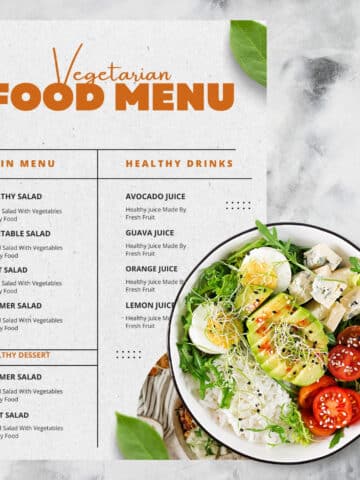
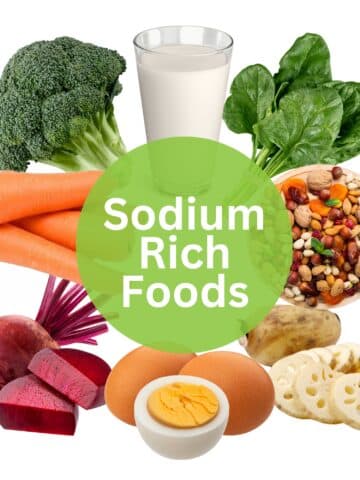
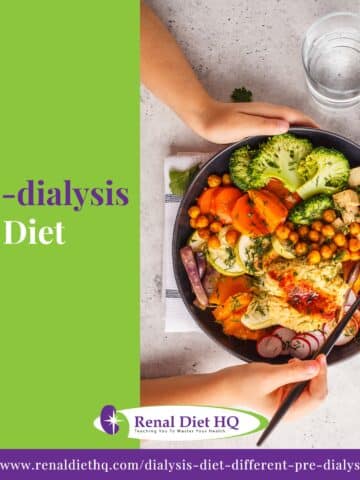
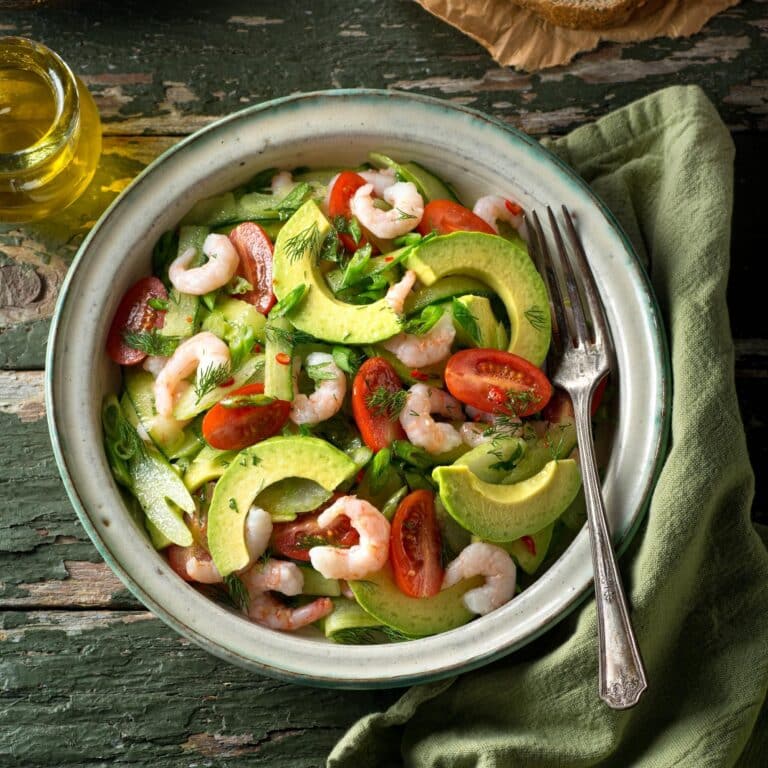
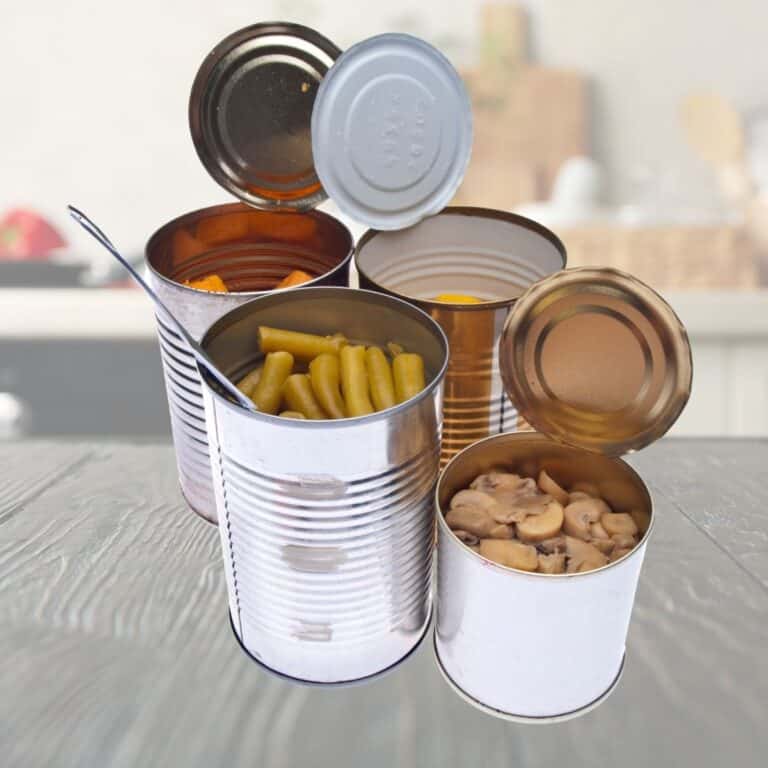


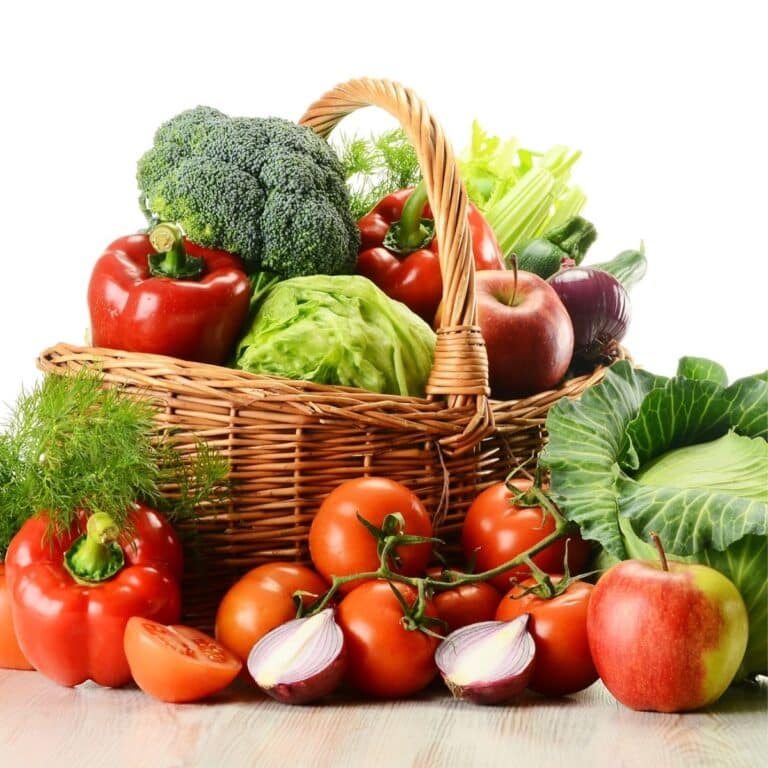
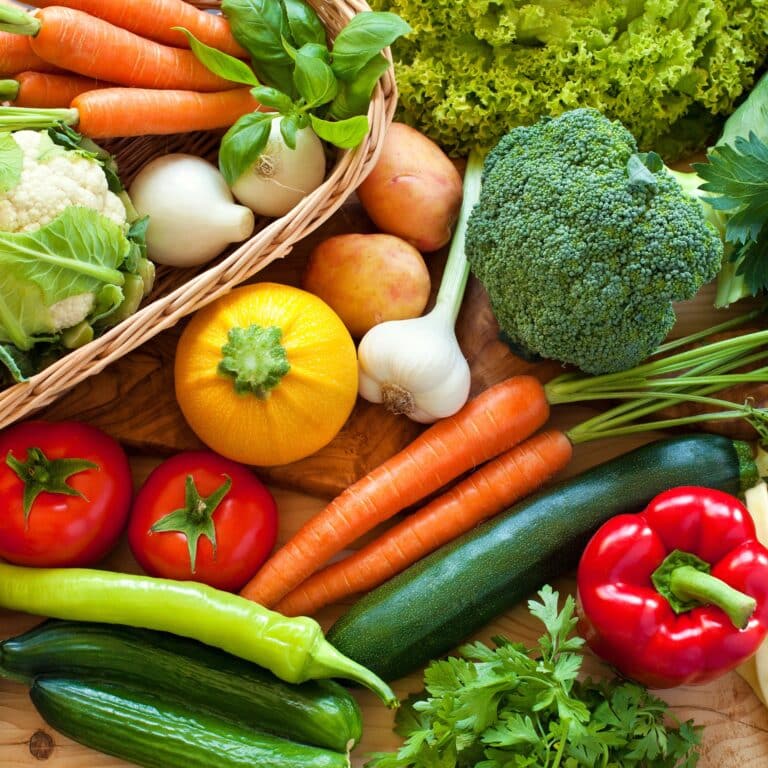


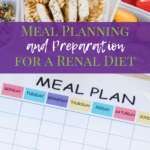
Hi Mathea,
I would like to buy DVD and also the book where I can buy them?
Let me know please.
Lyn